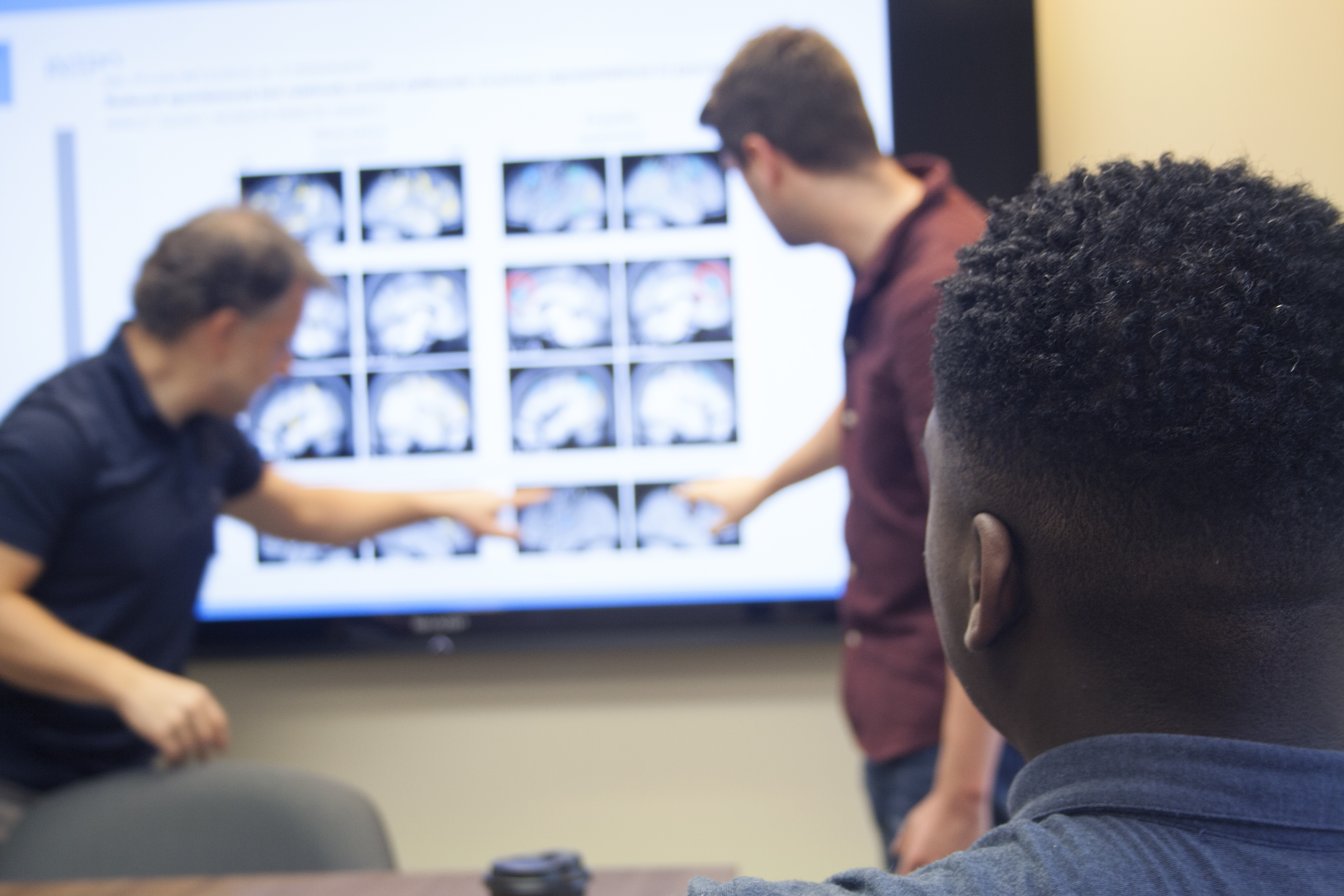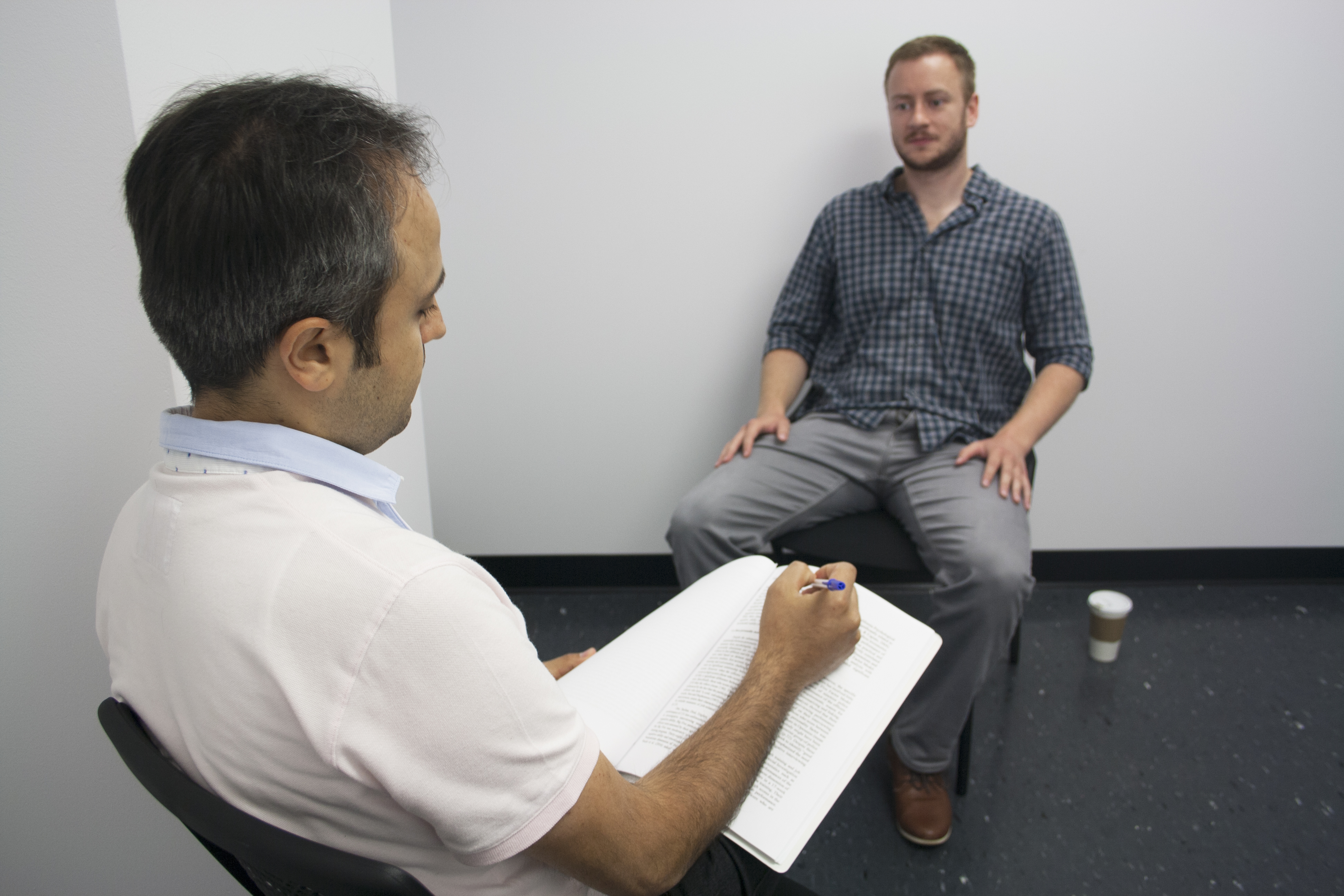Research
Participating in research studies is a great – and often fun – way to gain hands-on experience with psychology research studies. These studies are run by our professors and graduate students, who conduct research aimed at furthering a wide variety of scientific missions. They are all safe and fully approved by our university's Research Ethics Board, and provide an optimal way to learn how psychological research is conducted. Study participation is often an optional component of Introductory Psychology (PSYC 1000U), as well as some other second-year psychology courses. The SONA system allows students to sign up and participate in these various research studies. Log-in information is emailed to you during the first week of class, when applicable.
 Many people make bad decisions that bring them in contact with the criminal justice system. The Clinical Affective Neuroscience Laboratory for Discovery and Innovation (CANdiLab) at Ontario Tech University uses cutting-edge psychological and neuroscience methods to better understand what factors cause people to commit criminal, often violent, acts (e.g. antisocial personalities, psychopathy, substance abuse). Students in CANdiLab learn how to diagnose psychopathy, how to administer and analyze MRI brain scans, and how to use these and other methods to better understand the cognitive and emotional factors that lead people to commit criminal acts. For more information on our lab, and on our research, visit the CANDiLab website.
Many people make bad decisions that bring them in contact with the criminal justice system. The Clinical Affective Neuroscience Laboratory for Discovery and Innovation (CANdiLab) at Ontario Tech University uses cutting-edge psychological and neuroscience methods to better understand what factors cause people to commit criminal, often violent, acts (e.g. antisocial personalities, psychopathy, substance abuse). Students in CANdiLab learn how to diagnose psychopathy, how to administer and analyze MRI brain scans, and how to use these and other methods to better understand the cognitive and emotional factors that lead people to commit criminal acts. For more information on our lab, and on our research, visit the CANDiLab website.
 The goal of the Alert Lab is to improve law enforcement practices through psychological science, with a particular focus on the topic of investigative interviewing.
The goal of the Alert Lab is to improve law enforcement practices through psychological science, with a particular focus on the topic of investigative interviewing.
Main programs of research currently active in the lab include:
- Assessment of alibis
- Improving investigative interviewing procedures
- Comprehension and utilization of interrogation rights
Researchers at the Development, Context, and Communication Lab investigate a range of research questions about children's and adolescents' cognitive and social development.
Questions they seek to answer include:
- What are the best ways to ask children about their experiences to encourage accuracy?
- How do children's life experiences shape how they view the world and other people?
- How do peers and friends influence teens' decision-making?
The Lie Lab studies deception detection and interviewing practices from social and cognitive perspectives. They are particularly interested in approaches that can be used for training purposes and policy development. Visit the website to learn about their current projects or download their publications.
The Developmental Social and Cognitive Neuroscience (DevSCN) lab is interested in understanding the mental lives of children and adolescents. They take a holistic approach to examining demographic and lifestyle influences on the development of cognitive (i.e., executive function) and social cognitive (i.e., theory of mind) abilities, and the accompanying changes in brain structure and function. They are interested in examining neurocognitive development in both typically and atypically developing children and adolescents (e.g., those diagnosed with ASD) using naturalistic paradigms, such as movie watching.
